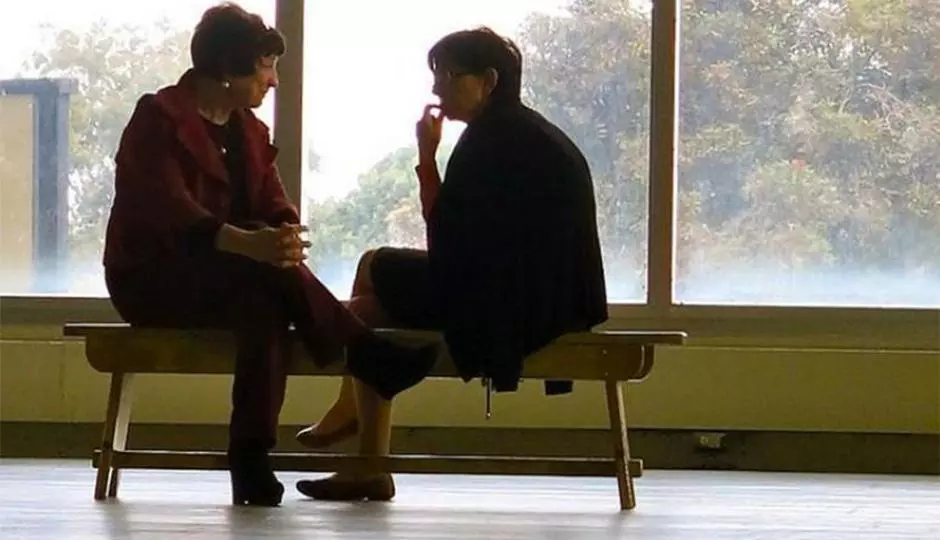For many men and women, talking about their hair loss is a dreaded challenge that they wish to avoid for as long as possible. Hair loss in women is an especially difficult subject as there is simply less societal awareness and understanding of the issue. The resistance to broach the topic in conversation, however, only isolates the matter, and the individual, more. By opening up lines of communication in families and between friends, men and women who are losing their hair gain support systems, shed the stress of constantly trying to hide thinning areas on their scalp, and have the opportunity to provide those they are closest to with specific methods of response to the concerns and milestones they share.
Of course, the challenges of talking about hair loss can certainly differ based on the varying types of loss. As discussed earlier in August, hair loss due to chemotherapy can play a large role for some patients in exacerbating what they feel is an outward display of ‘sickness’. Those suffering from alopecia areata frequently find it difficult to explain their sudden and spotty hair loss, which is caused by an autoimmune disorder that is commonly seen in otherwise healthy individuals. Similarly, women dealing with female pattern hair loss or other non-disease related types of hair loss such as stress-induced loss or postpartum loss, sometimes struggle with communicating their situation when outsiders assume they are ill. Regardless of the type or cause, there are many benefits to talking to friends and family about your hair loss. Five that you should consider today are:
1. Your Support System
Nobody needs to face hair loss alone! By talking to friends and family about your experience, feelings, and fears, you gain a support system that can be there when you need it. This important element is often recommended by doctors for those preparing for chemotherapy or alopecia-induced hair loss, but having a support system can play a significant role for all types of thinning and loss.
2. Setting Acceptable Language
Friends and family can often find it challenging to know what the “right thing” to say is. This is a fair concern as the “right thing” differs from one individual to the next. By opening the lines of communication with your support system, you can be clear about your preferred vocabulary, tone, and frequency for discussing the topic. For some, this may mean only talking about it when the individual with hair loss brings it up. Others may prefer a more open approach, requesting that their support system check in with them about it periodically. Additionally, any specific terms that cause sensitivity can be avoided by voicing the concern to your support system from the beginning.
3. Reducing the Stress of ‘Hiding It’
Thinning or balding may feel like a source of shame or embarrassment to women and frequently there is a fear that this shame or embarrassment will increase by talking about it and bringing the hair loss into the open. On the contrary, many women often find that their friends and family have noticed the change in their hair far less than the individual herself has and that the daily stress of trying to hide thinning or bald areas is greatly relieved by sharing with trusted companions.
4. Relieving Relationship Tension
Attempting to deal with hair loss concerns alone can create subtle and unexpected tension in relationships. For example, many individuals with thinning hair avoid situations in which their hair will get wet. To friends and family, this may simply seem like disinterest in partaking in certain activities and can create various small points of contention. These misunderstandings can be clarified through conversations about hair loss.
5. Moving Forward
Opening the lines of communication can reduce a number of worries, but perhaps most rousing is the promise for progress. Talking to friends and family about hair loss can be a first step for many men and women, making room emotionally to focus on moving forward and simultaneously creating an external support system to assist with a positive restoration process.
Talking about hair thinning and loss with friends and family can be challenging at first and yet also incredibly rewarding. If you are quietly suffering through your hair loss alone, break the silence today by sharing your concerns with a trusted companion. Invite him or her to come with you to a free consultation to learn what is occurring with your hair and scalp. If a friend or family member has opened lines of communication with you regarding their hair loss, always remember to offer positive support and encouragement.
Photo credit: Torbakhopper via Flicker Creative Commons







